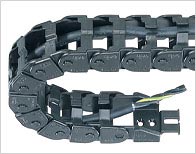
I’m in the midst of a re-read of Dara’s The Easy Chain, which has been slowed by the furious underlining and marginalianizing that the story demands. There are threads that I plan to pursue in future posts (e.g. Has there been a better novel involving Chicago in the last 20 years? The parallels between the rise of Lincoln Selwyn and a particularly problematic politician who has recently occupied the West Wing; The pestilent proliferation of skonk, etc.), but I’m still struck by how untilled this field seems to be.
Stephen Burn, who pointed me toward a number of the publications populating the Resources page, is currently editing a new collection called American Literature in Transition: 1990-2000, which he says will contain a longer piece on Dara (the projected pub date is 10/31/17). Based on the time parameters, it’s safe to presume that the focus will stay on The Lost Scrapbook. With Scott Pruitt’s recent appointment to the head of the U.S. Environmental Protection Agency, odds are improving that TLS will again prove infuriatingly prophetic, so it will be good to attract fresh attention and analysis to the novel’s manifold blessings.
However, it would great to see some enterprising and scrappy scholar take a shine to The Easy Chain and expend some ink unpacking its Second City mystery. I’ll be sharing some thoughts over the coming weeks, but I encourage you, gentle reader, to point me in the direction of any articles or essays I may have missed along the way. This is a bewitching book that tickles the same nerve endings that lean toward the light of Gaddis, Wallace, and Gass. Attention should be paid:
“…Trams crash down Rozengracht. Treeleaves curtsy and flipper, go butter-yellow while palming the July North Sea sunbreeze. Scooters buzz through clouds of midges rabbling at canalside. Tides of tourists, fat German, fat American, sandaled Italian, twist creased subsections of maps, spiderwebs in which they’re caught, down to canal-curves, up to facade-splays, seeking orientation. The narrow, brick-herringboned streets, upbuckled by lusty treeroots, sinkholed by time and rainwater. Backpack-size, forever-overflowing trash bins, hip high on twin metal legs. Housestone restored, stucco restored white, stucco rotting smudge to dark. Lincoln sees all these. Lincoln moves on…”
The twisty and complex nature of those ever-sweet prose seem to clue is in on why Lincoln left; it was just too much. The Easy Chain sometimes edges out TLS in terms of how it blows me away.
I’d like to read it for a third time, especially knowing you are going through it. It’ll be nice to hear occasional updates from you. Towards the end, a question comes up for me that maybe we can hash out in these threads.
LikeLike
That’s what we’re here for. There are a lot of questions that pop up near the end, with one that I’m actively tracking during this read. I look forward to discussing it with you (and others) here.
LikeLike
Let’s start with the worst part; that’s a typo in the first sentence of the novel, right? Our love for the book, however, has forced us to justify it. But we’re kidding ourselves.
LikeLike
Same here. That’s gotta be a typo.
LikeLike